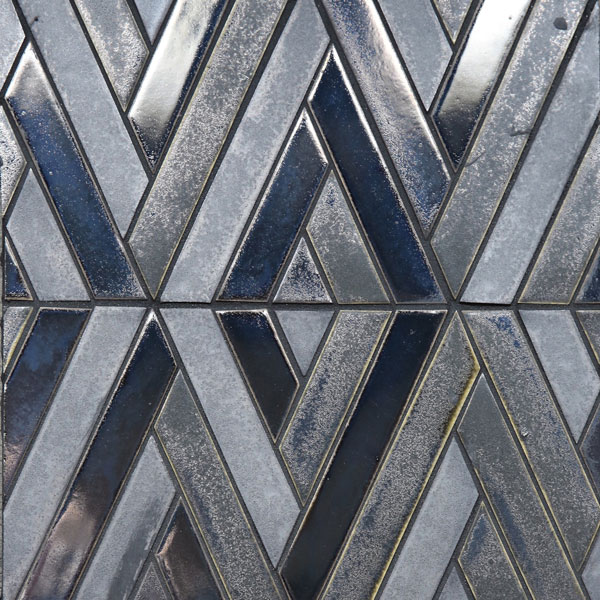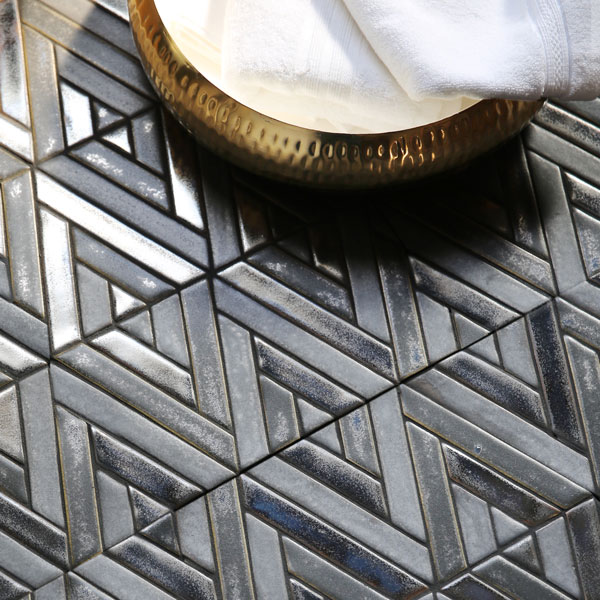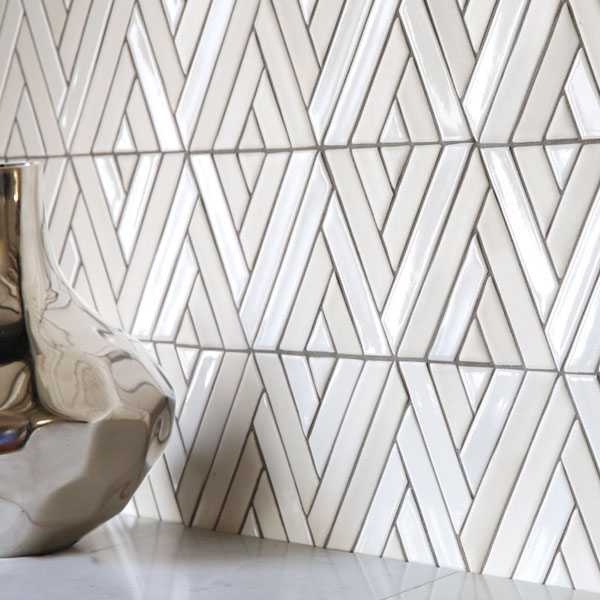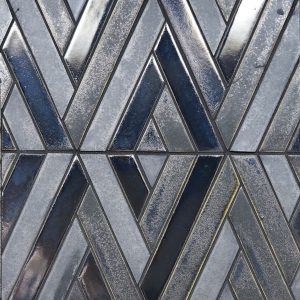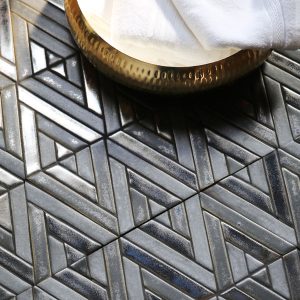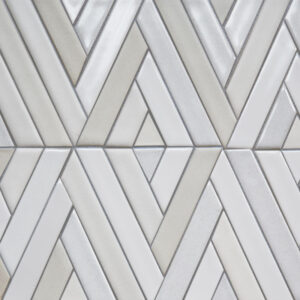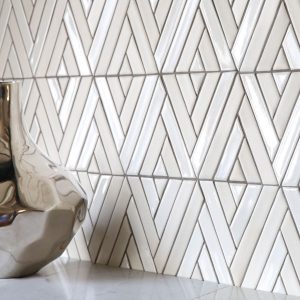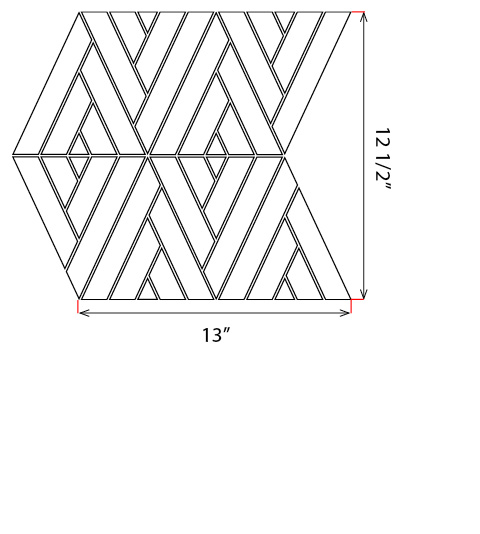Additional Information Download a Guide
FACE TAPED
Mosaic Face Tape is a clear adhesive face-mount film which is strong enough to hold mosaic tiles for packing, freight and installation, but releases cleanly, without leaving a sticky residue on the tiles.
Q: What type of saw should be used for cutting?
A: We recommend using a wet saw with a new diamond blade and cutting the tile slowly. Different types of glazes handle differently from each other. Some work better with slower cuts and some work better with faster cuts. We recommend the tile installer make some small test cuts prior to installation.
Q: Do I need to seal my tile?
A: You should seal all tile to protect from materials that may stain and to protect the finish by filling in microscopic pores that may otherwise trap discoloring materials.
Q: When should I seal my tile? What kind of sealant should I use & do I need to reseal my tile?
A: We recommend sealing your tile before grouting to prevent the grout from seeping into any cracks or pores in the surface of the glaze and creating haze. We also recommend sealing after grouting if you are using a porous grout to protect your grout from stains as well. Many sealants are suitable for sealing both ceramic products and grout. We recommend an impregnator penetrating sealer. If your installer has another preference, don’t worry; any kind of ceramic sealant is safe to use with our product. No matter what kind of sealant you use, just make sure to follow the manufacturer's instructions for maintenance and resealing.
Q: How do I clean my tile?
A: We recommend wiping your tile clean as needed with a non-abrasive pH-neutral soap, such as diluted dish soap. Stronger chemical cleaners won’t damage our tile, but they may eat away at the sealant or grout. Due to sensitivity to acidity, Alloy glazes are not recommended to be cleaned with acidic based cleaners.
Q: What type of setting material should I use?
A: There are a number of products that will work. If using a tile installer, defer to his/her preferred materials as they have a lot of experience with these kinds of projects. If you’re planning on doing the installation yourself, your local hardware store will have some excellent tips as well.
Q: What size grout joint should I use?
A: Grout joint sizes is really a matter of personal preference. Our mosaic grout joints average 1/16th of an inch but can vary to due shrinkage in our hand made tile.
Q: What kind of grout should I use?
A: Grout is really a matter of personal preference because any grout will work with our product. We make our grouted sample boards with sanded grout in neutral colors because we like the aesthetic, but feel free to mix it up! There are all kinds of elements that can affect your grout selection, including cabinet and paint color, flooring, and plumbing fixtures, so you will be able to make the best decision because you have the best understanding of how the room fits together. Your installer, your designer, or your local hardware store will also have some great recommendations for grout.
Q: Are your products safe for pools?
A: Our tiles are vitreous, which means that they are suitable for use in pools in most parts of the country. It is important to consult your local guidelines about pool requirements in your area. We do not recommend the use of stone in submerged water applications and due to sensitivity to acidity, Alloy glazes are not recommended for pools or spas.
Q: Are acidic pool cleaners safe for your tile?
A: Occasional contact with acidic products should be okay. Prolonged contact with acidic materials can eat away at the tile sealant or the grout between the tiles. Our product testing hasn't shown for certain that strong acid will damage our tiles, but many strong chemicals can have an effect on ceramic and stone over time. Because of that, we recommend diluting some cleaning materials like muriatic acid, which is typically in line with the acid manufacturers' usage instructions. If you can find pH-neutral cleaning products that will do the job for you, we always recommend using those as often as possible.
Inspection
Inspect all material for damage and acceptability. INSTALLATION SIGNIFIES ACCEPTANCE. Issues of acceptability must be resolved prior to installation. Under no circumstance will Encore accept responsibility for the installation of unacceptable product. If the product is damaged, please contact your place of purchase immediately for replacement tiles.
Blending/Variation of Tiles
Encore Ceramics hand makes all of their products, so there is an inherent variation in color, shape and size. Before installing, we suggest that all the tiles be laid out in order to balance the range over the entire installation area. If it is impossible to lay out the entire order, take several pieces from each carton to check variation. We cannot be responsible for issues regarding color/range variation after installation.
Marking Tiles
Take care during the measuring and marking process to protect against hard-to-remove marks and stains. Pencil marks and permanent marker can sometimes be impossible to remove prior to sealing your tile. When marking for cuts, make the mark so that the blade will remove it when cutting.
Sealing Your Tile
Although Encore’s glazes and body are vitreous, they are not impervious. WE RECOMMEND SEALING ALL OF OUR GLAZES BEFORE GROUTING using an impregnator penetrating sealer.
Grout Testing
With all glazes we advise testing grout on tile before the installation is begun. Dark colored grouts may stain light colored tiles or matte finishes. Light colored grouts may leave a “haze” on dark colored tiles, especially matte finishes. Grout only a small section at a time. Remove excess grout and clean surface thoroughly. Do not allow grout to cure on tile surface before removal.
Care & Maintenance
Please consult your tile installer or tile dealer regarding care and maintenance of your tile installation.
For Every Day Cleaning we recommend a neutral pH cleaner that removes dirt and soil buildup from tile, such as mild non-acidic and non-abrasive soap.
For Heavy-duty Cleaning we recommend an alkaline-based cleaner appropriate for degreasing and removing wax. Always consult the cleaning instructions listed on whatever sealer you decide to use. Each manufacturer has a recommended cleaner.
For Additional Information please contact the location where the tile was originally purchased.
- The nature of our handcrafted processes gives you a unique, beautiful tile. Our process starts with the clay body; we mix our clay body in-house from dry ingredients. From there we create and mix all our stains and glazes as well. We source our raw materials direct from quarries around North America and just like with stone there is natural variation between shipments of our materials.
- Many of our tiles are hand-cut and our glazes are hand-applied using different methods. They are fired in small kilns with individual personalities. Our glazes and kilns can be affected by weather as well, so heatwaves and cold snaps can affect the final product.
- Our processes are kept organic by design. We appreciate the beauty of a handcrafted tile and that is reflected in the designs of our tiles and glazes. In selling customers on our variation, it’s helpful to approach it like you would a natural stone.
- Glazes are mixed in very small batches. Most orders require multiple batches of glaze which can add to the variation.
- Use our Glaze Sign-Off forms available on our Support Site in addition to loose pieces and photos on our website to educate yourself and your customers on our range and variation.
- Expect to see ANY or ALL of the range in an order. Full range isn’t guaranteed, but our goal is to get you as much variation as possible.
- Size Variation – There are many factors in our processes that may result in a slight variation in sizing. This can be over multiple orders or in a single order. We do what we can to mitigate this as much as possible, but some variation in size is unavoidable and part of the beauty of our tile. This shows up in mosaics as uneven grout joints – this is normal and to be expected.
- Our tile is vitreous and is suitable for indoor and outdoor applications including wet applications (baths, pools, spas, saunas, steam rooms, fountains, and showers), fireplaces, and light traffic floors.
- Sheers – due to the nature of the glaze, Sheers are not recommended for use on floors, exteriors, or pools/spas. These glazes show dirt easier than other glazes and can be difficult to keep clean.
- Alloys – due to pH sensitivity, Alloy glazes are not recommended for pools/spas.
- Bronze – our most sensitive glaze, but also one of our most unique and beautiful glazes. Bronze can patina or show wear easier than any of our other glazes. It is not recommended for wet areas or exteriors. Use caution when putting on a floor. When Bronze patinas it turns black.
- Only experienced professional tile installers should install our products in pools.
- Product Selection: Size guidelines vary by state for pools and water features. Refer to your local guidelines for acceptable sizes. Sheer and Alloy glazes are not recommended.
- Preparation: Most tile failures can be traced back to substrate preparation. It’s vital that your contractor follow all steps outlined in TCNA P602.
- Sealing: Sealing is required to protect from materials that may stain and to protect the finish by filling in microscopic pores that may otherwise trap discoloring materials. Follow sealing manufacturer’s guidelines for maintenance.
Grout Size and Color
Ceramic tile shrinks at different rates depending on its shape, resulting in variations in grout sizes. Grouting helps alleviate this variation.
Note: Contrasting grout color may affect the color of the tile and accentuate varying sizes.
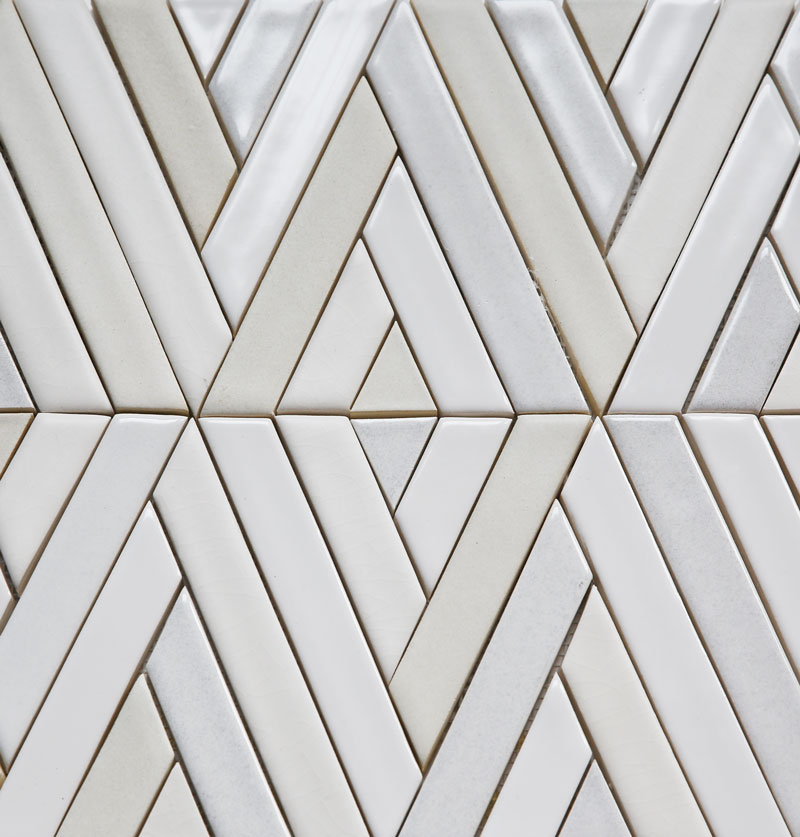
Before Grouting
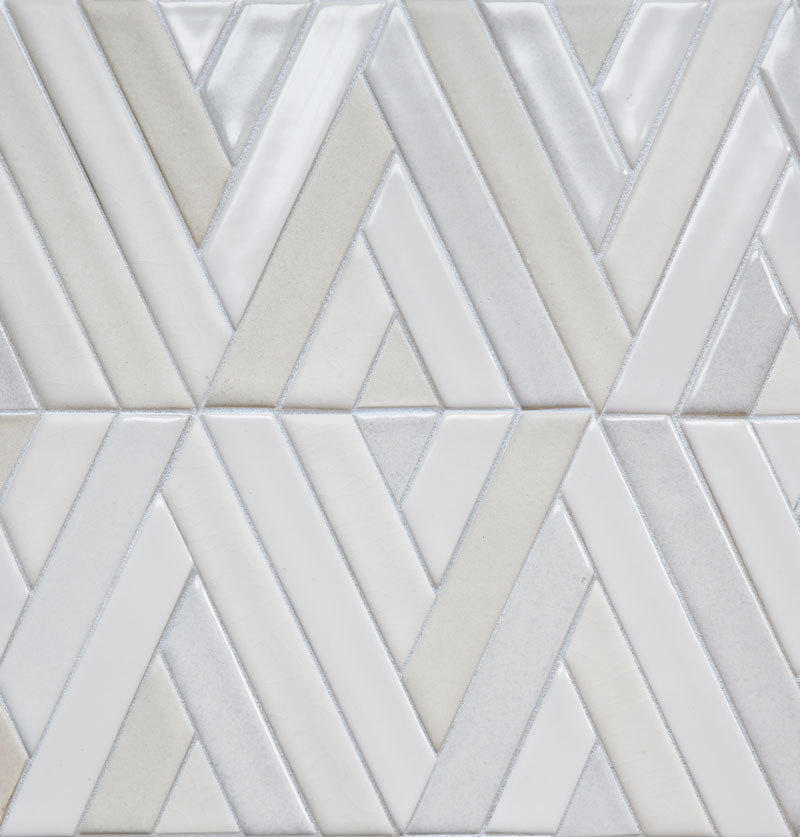
Complementing Grout Color
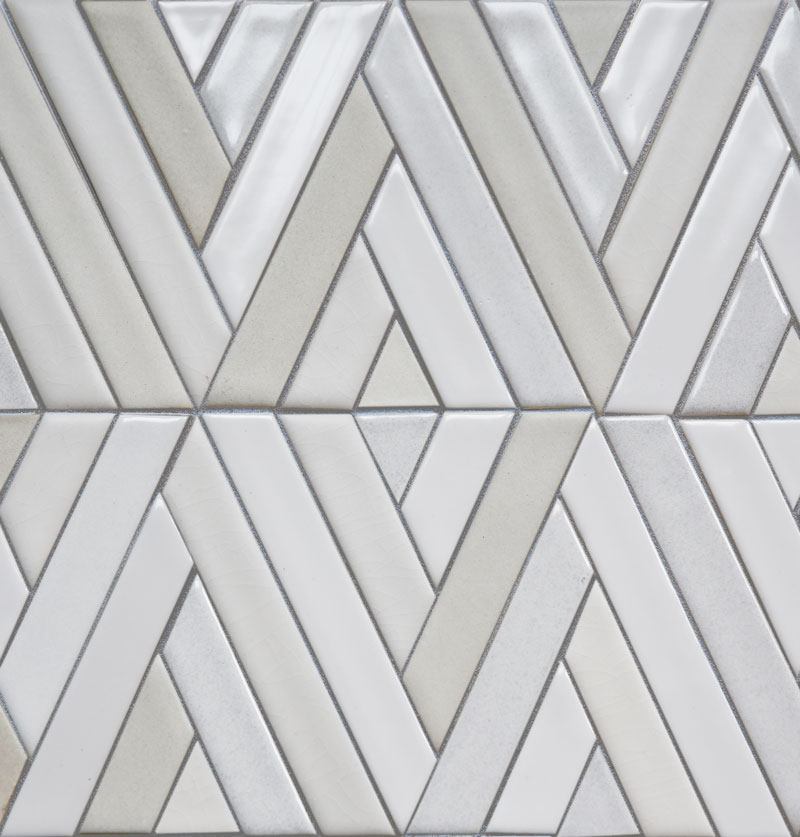
Contrasting Grout Color

